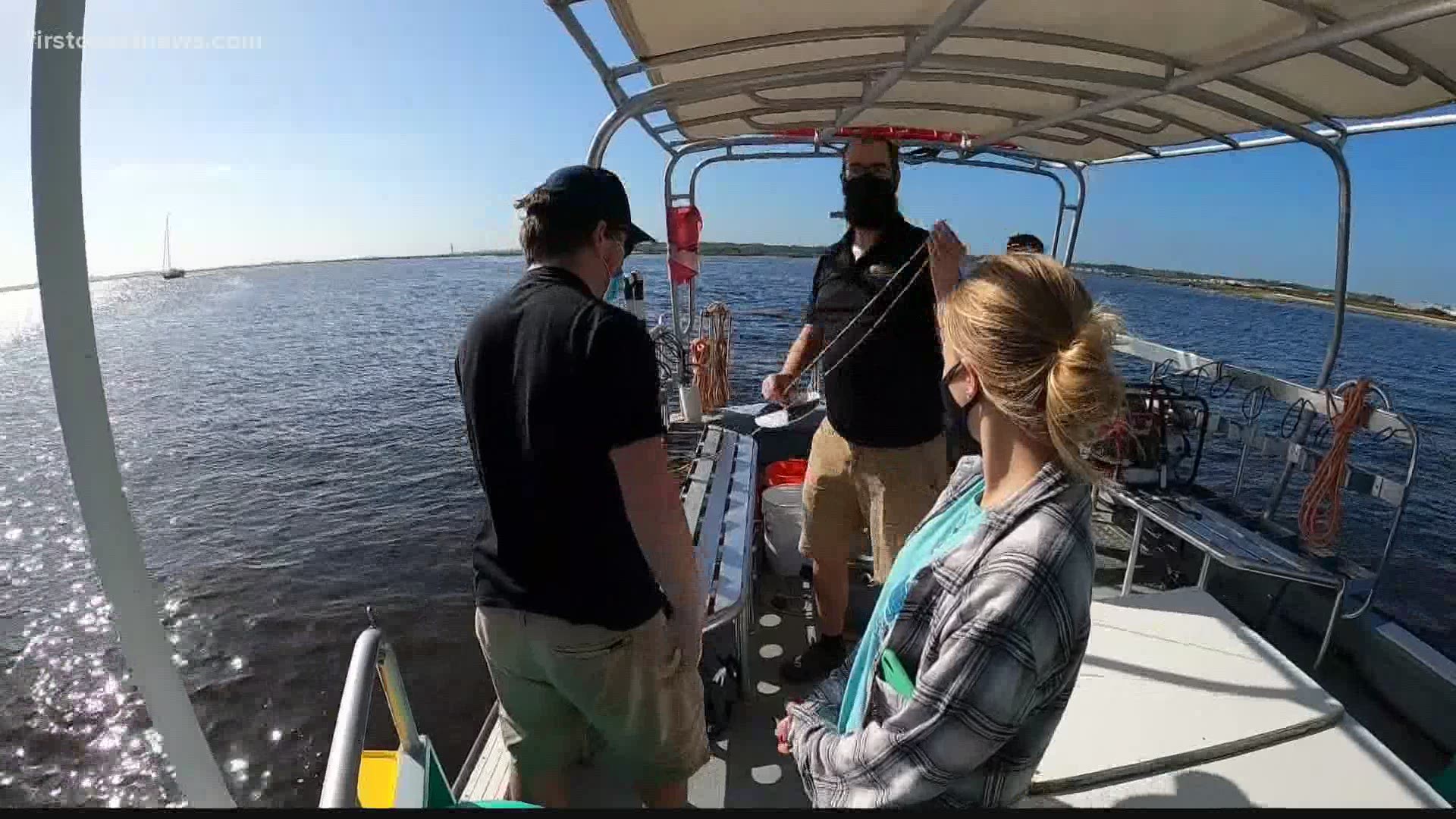ST. AUGUSTINE, Fla — Real scientific research meets real learning on real boats in St. Augustine.
That’s the goal of a new group aimed at making marine research something that is attainable while studying issues affecting the ocean and waterways.
On a sunny morning in St. Augustine, a boat set off to the ocean and the Intra-Coastal Waterway with a mix of people aboard. There was a professor, a shipwreck archaeologist, college students, and a retired pilot who loves the water.
That retired pilot is Mike Alyea. He is also the founder of a program called Blue Ocean Sails that has a mission to study local waters and to educate.
He called it a passion of his.
He said the idea is to "enlist boat owners who are taking students out and researchers out in an effort to get them on the water."
Alyea says the organization may also aim to acquire its own boat for the program.
On Thursday, First Coast News went out on the boat, Flagler College Professor Ed McGinley was aboard with two students.
“Today we’re doing phytoplankton monitoring," McGinley said. "We're basically grabbing water samples. What we’re looking at you can’t see with the naked eye.”
With a microscope, they’ll look for certain phytoplankton that "when they grow out of control, they can cause some serious problems," McGinley said.
Problems like red tide.
He noted that harmful algal blooms or red tide have not been frequently seen on the Intracoastal, but there is the potential for it to grow here.
The potential is because of fertilizer from golf courses and people's lawns and from leaky septic tanks.
Teaming up with Blue Ocean Sails is the Lighthouse Archaeological Maritime Program (LAMP). It’s a shipwrecked group that is occasionally donating the use of its boat and captain, Nick Budsberg.
From the captain's seat, he pointed back to the stern where students and the researchers were collecting water samples. "They’re learning more about things like plankton and what marine biology is going on, temperature changes, and salinity. And all of these scientific measures can affect shipwreck sites." He said there is a benefit to join Blue Ocean Sails.
Alyea said, "A lot of students have never had a chance to go out on the water. It’s one thing to do marine science on the dock, on the shore. It’s absolutely rewarding to take them out on a vessel on the ICW or ocean."
The mission here is to share resources, share knowledge, to learn more about the water we share.
Budsberg smiled, "It’s all about the water. The water connects us all."
To learn more about Blue Ocean Sails, click here.

